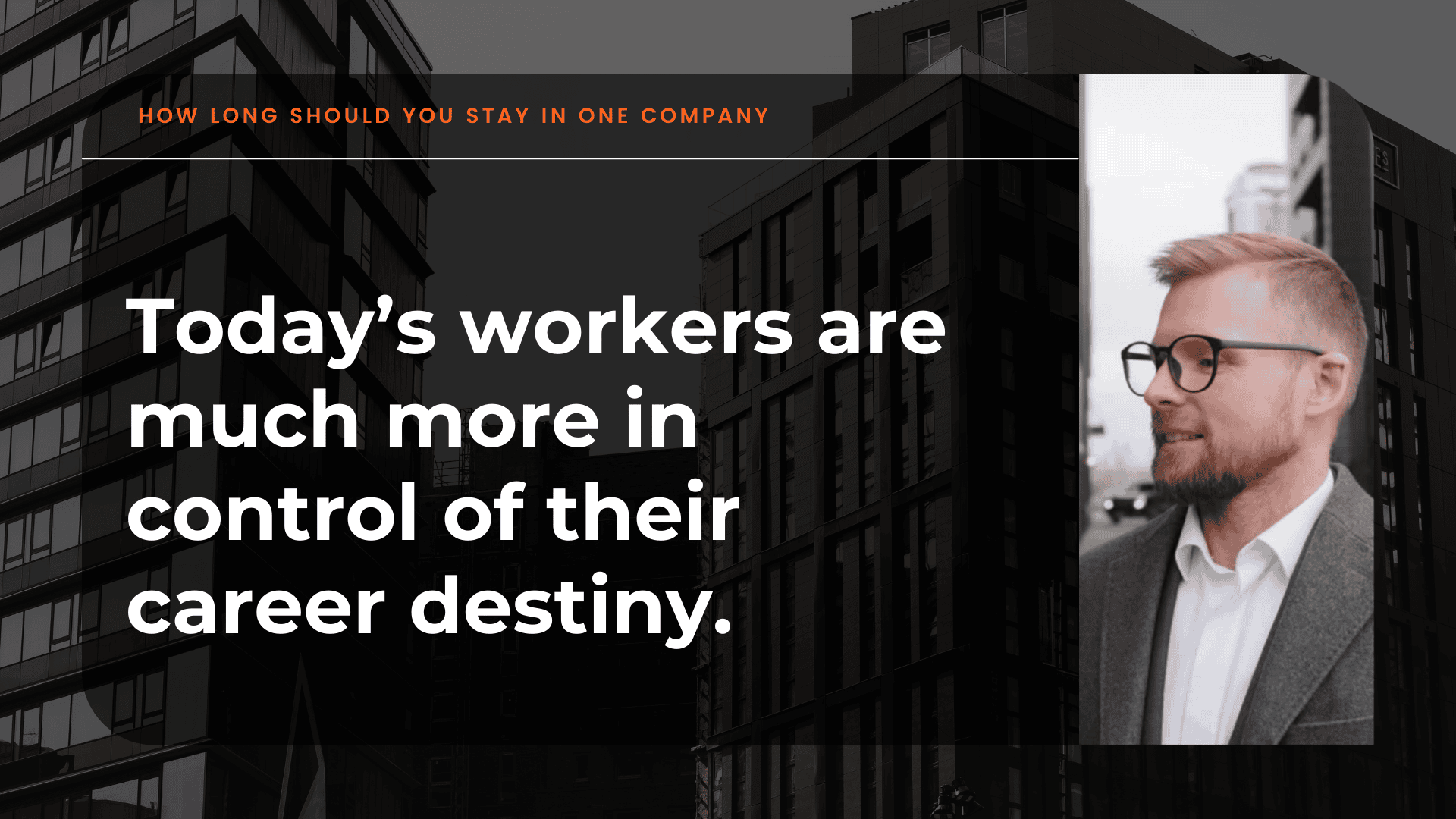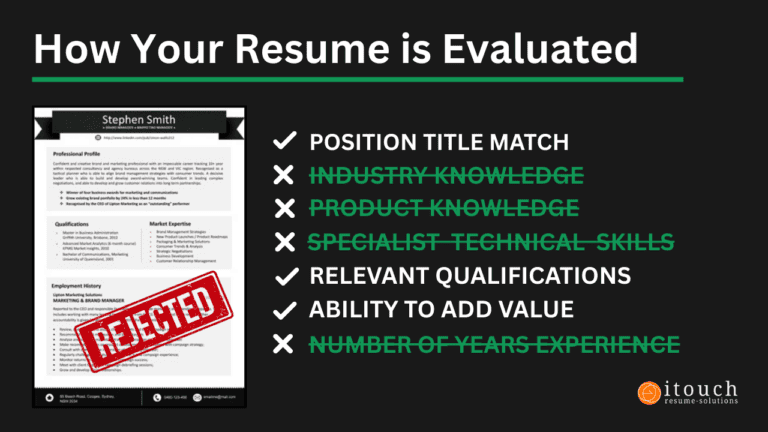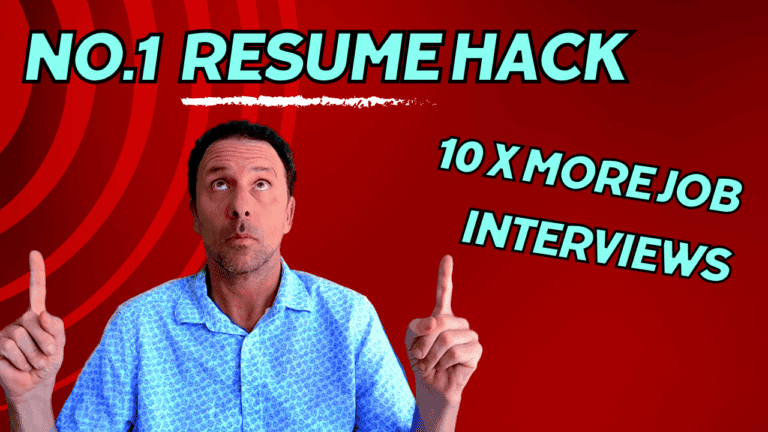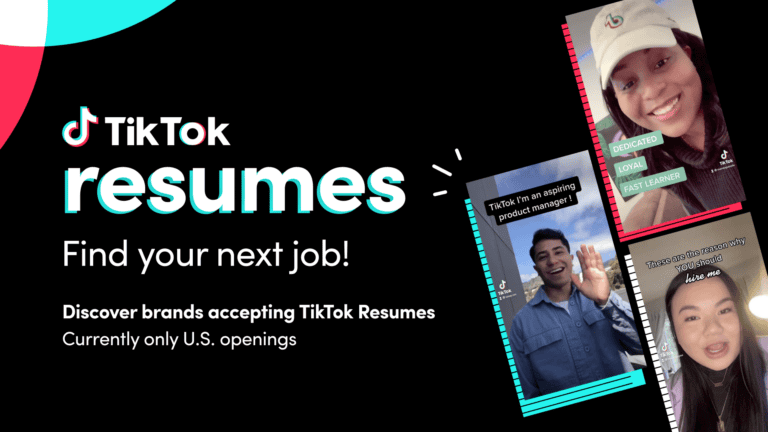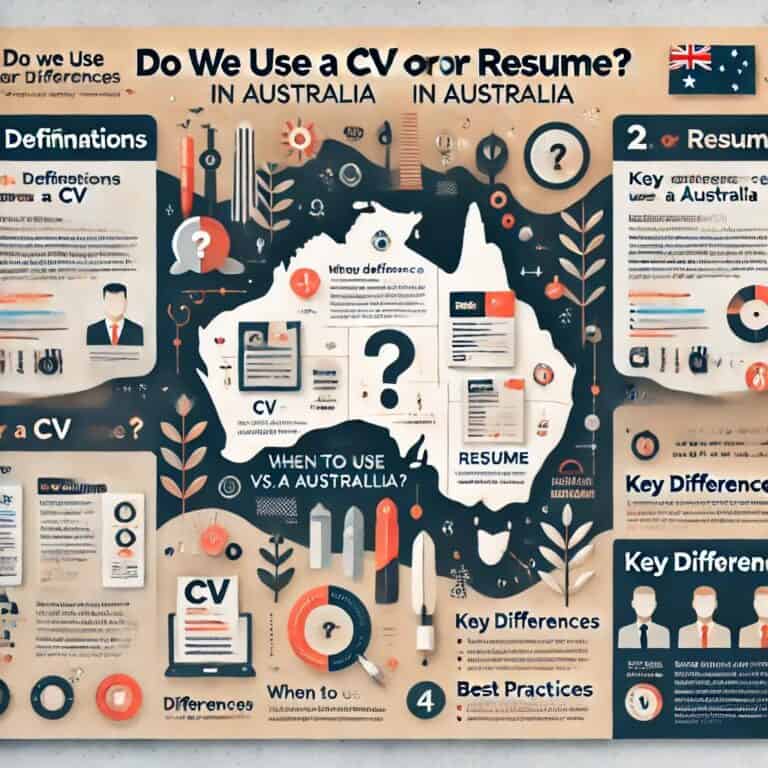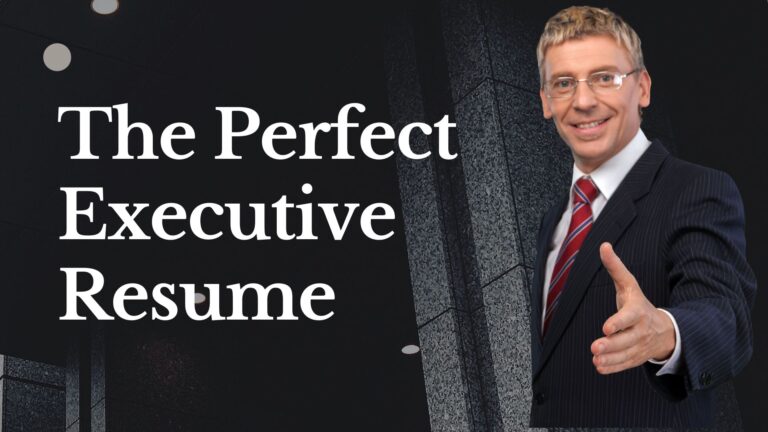Gone are the days when careers centred around one job, and job-hopping meant having more than two jobs in a lifetime. Today’s workers are much more in control of their career destiny.
But how long should you stay with the one company before considering new opportunities elsewhere? Most employers and recruiters would suggest 2-3 years for those seeking career development. And statistics back this up, with the median number of years that wage and salary workers had been with their current employers is approximately 4.1 years (Bureau of Labour Statistics).
However, it really isn’t unusual for jobseekers to move in and out of a job in much less time.
But how does it impact your resume/CV?
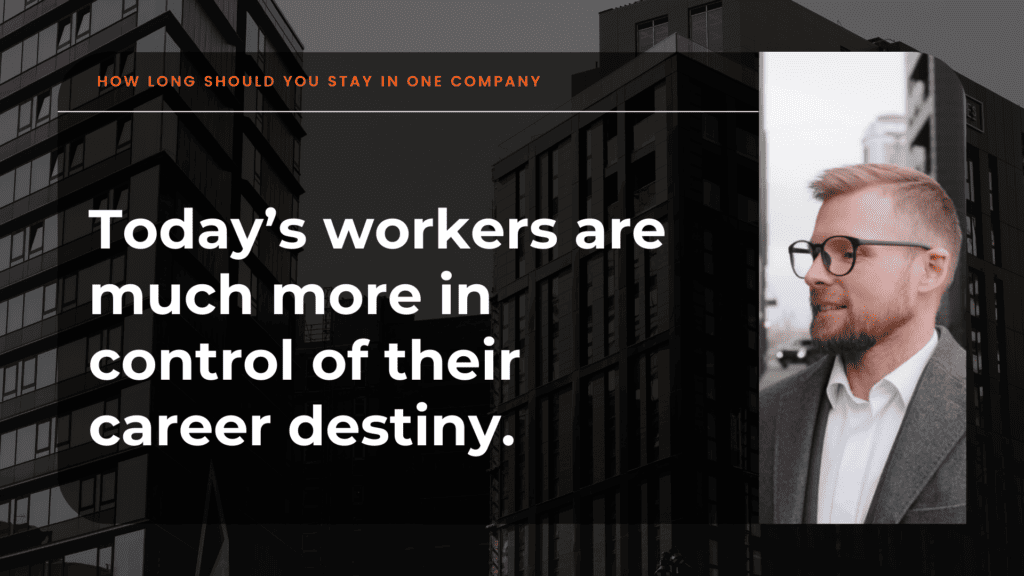
The one year rule
The one-year rule is founded in practicality: as starting a job is a huge adjustment, and it takes time to fully get used to it. Furthermore, the thinking goes, even if the environment is tough, you need to show professional commitment and stickability before moving on. A year also gives people time to make an impact at a company.
That being said, more than one year with the same employer can seem like a lifetime if you’re spending every workday feeling underpaid, unappreciated, or unfulfilled.
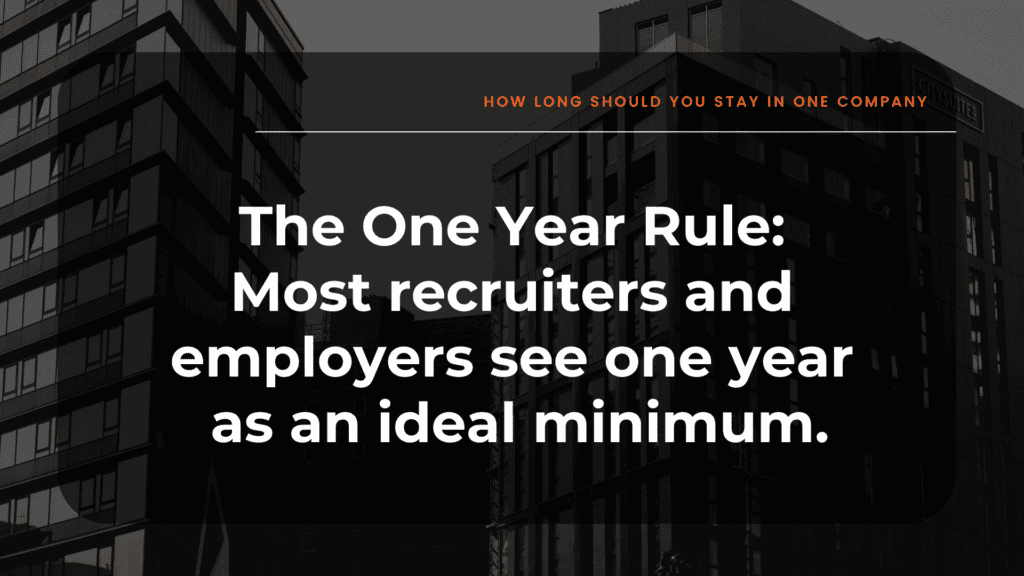
The perception of changing jobs to soon changed
We have seen that time and time again, perceptions of what constitutes a successful career can vary from person to person, and traditional ideas around ideal length of tenure tend to change between generation and generation.
Amidst the pandemic of a rapidly changing workplace, there is less stigma attached to job-hopping or having shorter stints. As a result, resigning from a job in less than two years, or even one year, doesn’t seem that bad on your resume.
But, if you have more than one job at which you didn’t last a full 12 months, then that may be a red flag to potential employers irrespective of why you left. Industries and job types can also carry varying levels of expectation. Different industries and functions view job-hopping differently.
For instance, it’s more commonly accepted that professionals in advertising, technology, or those in start-up environments will move around more frequently.
Furthermore, contractors will typically move around every 6-12 months, and be happy to do so. Employers are also more forgiving of professionals who jump from job to job early on in their career when they are still discovering the right path
Put a positive spin on short tenures
If you end up with a couple of short-term gigs in your work history, it doesn’t necessarily mean your job hunt is doomed. Just be prepared to adjust your resume and then talk your way through it. The following strategies can help you tell a compelling career story:
Describe what you’ve learned from your job experiences.Explain how each job you held, helped you refine your career goals and pinpoint exactly what you’re looking for in a company and position. Focus on the upsides.If you left a job because of a terrible boss or poor treatment, try not to sound too bitter about it. No Hiring Manager is drawn to a negative person, especially when they’re interviewing you.
Instead, say something like you felt misled about what the position entailed, or you realised early on that it wasn’t a good fit since their values didn’t align with yours. Redirect the conversation to the future. Emphasize your desire to find a company where you can put down roots and truly grow. Then, make the case as to why the company should consider you is the right place for you.
No matter how badly you want to leave your job or move onto something bigger and better, you don’t want to be branded a serial job-hopper. When in doubt about the right time to leave, try to stay long enough so that you can at least say you learned a new skill or gained valuable experiences that will benefit your next employer.
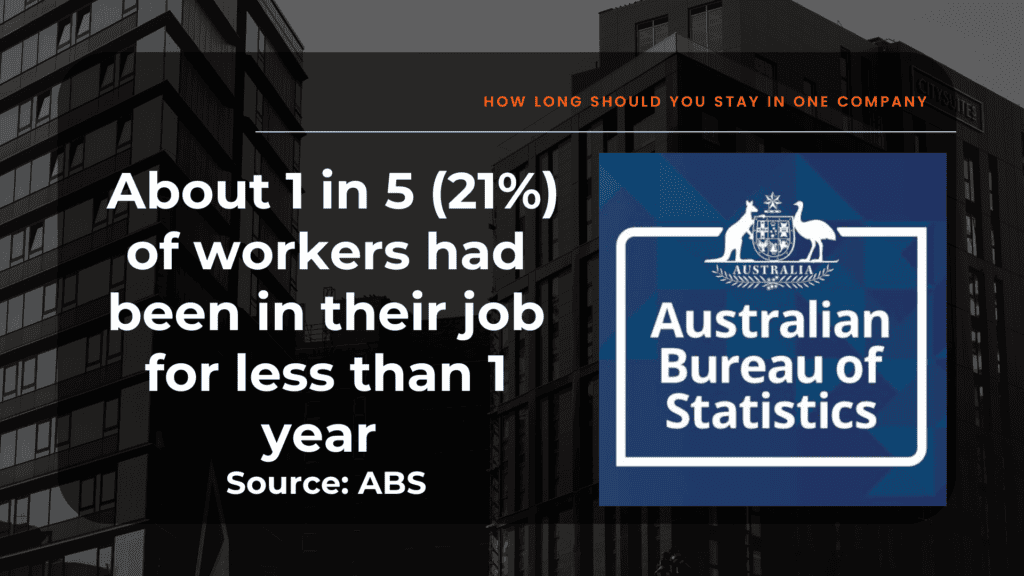
So how long should you stay in the one company if you aren’t enjoying your work?
It’s a complex equation, but sitting in a job that is causing you unnecessary stress isn’t going to do you any good.
As workers are increasingly seeking out workplaces that prioritise employee wellbeing and engagement, rather than staying put at a ‘bad’ employer, you won’t be the first who has made the decision based on their mental health.
Take the initiative to see what other opportunities are out there. If you are concerned that your CV comes across as “job-hopping”, there are some strategies that can be used such as grouping position and roles together. Right now, there is less stigma attached to job-hopping or having shorter stints than in previous years.
Remember, if you’ve had problems in the past with finding stability, the onus will be on you to figure out what you need from your next employer and to reduce the risk of you not fulfilling your career aspirations in your next role.
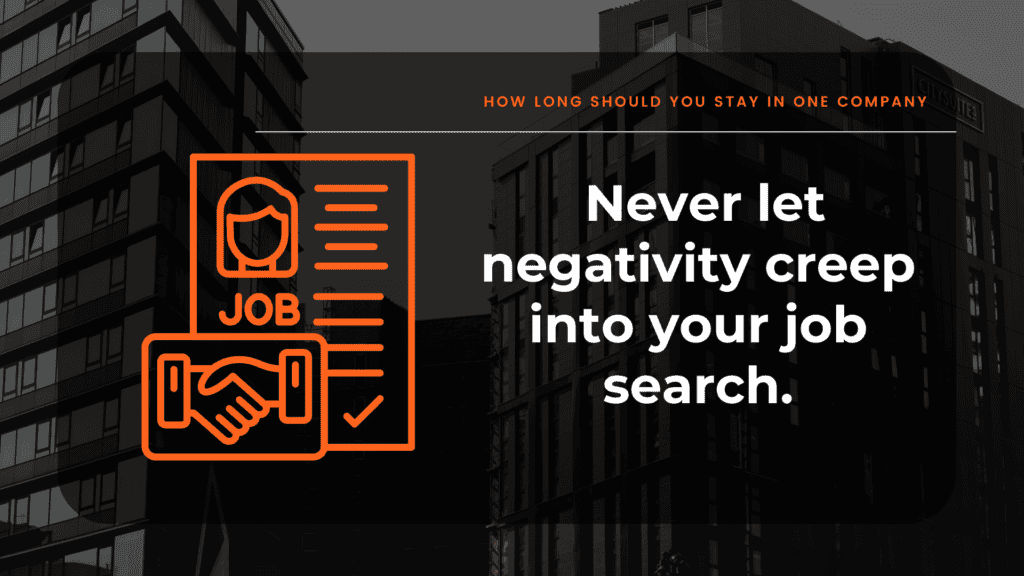
Making your next move
Take the initiative to see what other opportunities are out there. If you are concerned that your CV comes across as “job-hopping”, there are some strategies that can be used such as grouping position and roles together.
Right now, there is less stigma attached to job-hopping or having shorter stints than in previous years.
Remember, if you’ve had problems in the past with finding stability, the onus will be on you to figure out what you need from your next employer and to reduce the risk of you not fulfilling your career aspirations in your next role.
Need Help Making Your Next Move?
Our resume writers are on hand to help you build your career. We have helped more than 8000 clients in Australia, and have expertise across more than 14 markets. If you need help with a professional resume or career advice, we would be delighted to assist you.


